The final and most controversial part in Haim Yavin’s travelogue, examining different aspects of daily lives and struggles facing Arab citizens in Israeli society.
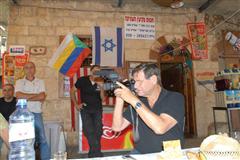

The final and most controversial part in Haim Yavin’s travelogue, examining different aspects of daily lives and struggles facing Arab citizens in Israeli society.
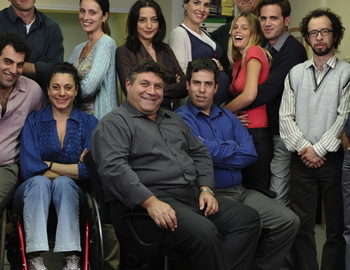
In the Israeli adaptation of the world famous comedy, the office is a microcosm of Israeli society, where an orthodox woman, Arab man, Russian immigrant, and gay man work under one roof with a useless, non-pc boss. Based upon the original series produced for the BBC, and created, written and devised by Ricky Gervais and Stephen Merchant
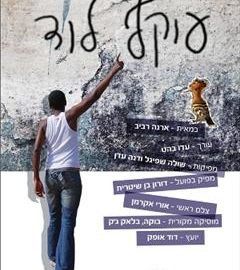
The story of Ilan Hakaray, principal of the Amal High School in Lod who offers students their last opportunity to complete a high school education after they fail out of other institutions. We follow three students’ stories through their principal’s eyes, as he doggedly fights for them to succeed against all odds.
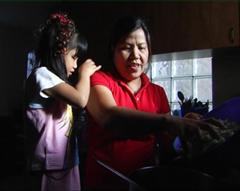
A six-year-old Filipino girl who is blind and was born in Israel is adopted by a loving Filipino worker, Janet, a Philippine foreign worker. Janet needs to explain to her daughter about an operation which might save one of her eyes and increase their chances to stay in Israel. Together they try to bridge linguistic and cultural gaps in a country that one of them regards as her homeland, while the other considers it a foreign land.
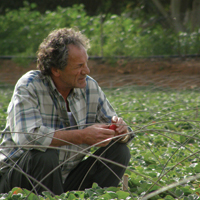
The stories of three generations of one family of farmers in a financial crisis, struggling to keep their land in the south of Israel. Starring Mohammad Bakri as Moshe, the Jewish Moroccan head of the family, with Lior Ashkenazi, Menashe Noy, and Yael Abecassis.

Miriam El Kwader, a Bedouin wedding photographer and mother of seven, living in an unknown and neglected Negev village, reveals through her camera lens, the world of Bedouin weddings; the most distressing issue revealed is polygamy.
This is the story of three, relatively educated and independent women, trying to survive, each in their own way in their world – a life of polygamy. One is a “first wife”, living in constant fear that her husband will bring home a second wife. The other two are pushed into marrying already married men, and become “second wives”, forced to cooperate within a structure they despise or are afraid of.
The family tragedies presented in this film, highlight the strength and survival of the social structures and their injustices; leaning usually on the victims` partial cooperation.

In the Israeli Negev desert lays the Bedouin Village of El-Sayed. No hearing aids can be seen because in El-Sayed deafness is not a handicap. The tranquility of the village is interrupted by Salim El-Sayed’s decision to change his deaf son’s fate using the Cochlear Implant Operation. Salim’s decision is evoking great conflict in the village threatening the tradition of coexistence between deaf and hearing.
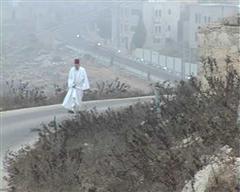
As a tiny sect constantly in danger of extinction, the Samaritans have very harsh rules about assimilation. After Sophie Tzdaka and her three sisters left the community, one after the other, the family became subject to terrible physical and mental harassment by sect members.
Director Barak Heymann (“Bridge over the Wadi”, “Dancing Alfonso”) follows Sophie, who is the youngest daughter as well as a TV personality, on a journey to her family’s open wounds in an attempt to understand who the real victim of their shattered home was.
Lone Samaritan is a touching father-daughter journey, which raises universal issues of belonging, faith and identity, and forces its heroes to confront the difficult isolation of those who seek a personal path within a closed tribal world.
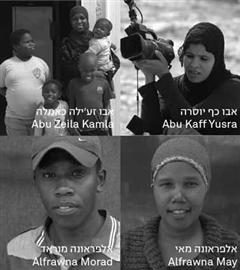
Made up of four short films, all of which are directed by Bedouin directors in their debut as film makers, this unique film is an unprecedented authentic self-portrait of current life in Bedouin society. Portraying the struggle for progress that in many ways is held back by the traditions of the nomadic past.
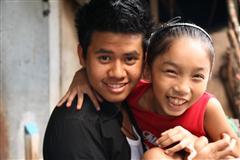
As the State of Israel about to deport foreign workers and their children – this film is a timely exploration of a complex political and personal situation. Where does identity come from? And what makes you connected to your homeland? Homecoming takes us on a moving journey with three teenagers who were born in Israel to foreign workers who came to Israel in search of a better life. These kids are not Jewish, but are deeply Israeli – and their individual journeys take on cultural and emotional dimensions. We travel with them to the Congo, to Peru and to the Philippines as they examine their roots and contemplate their future.